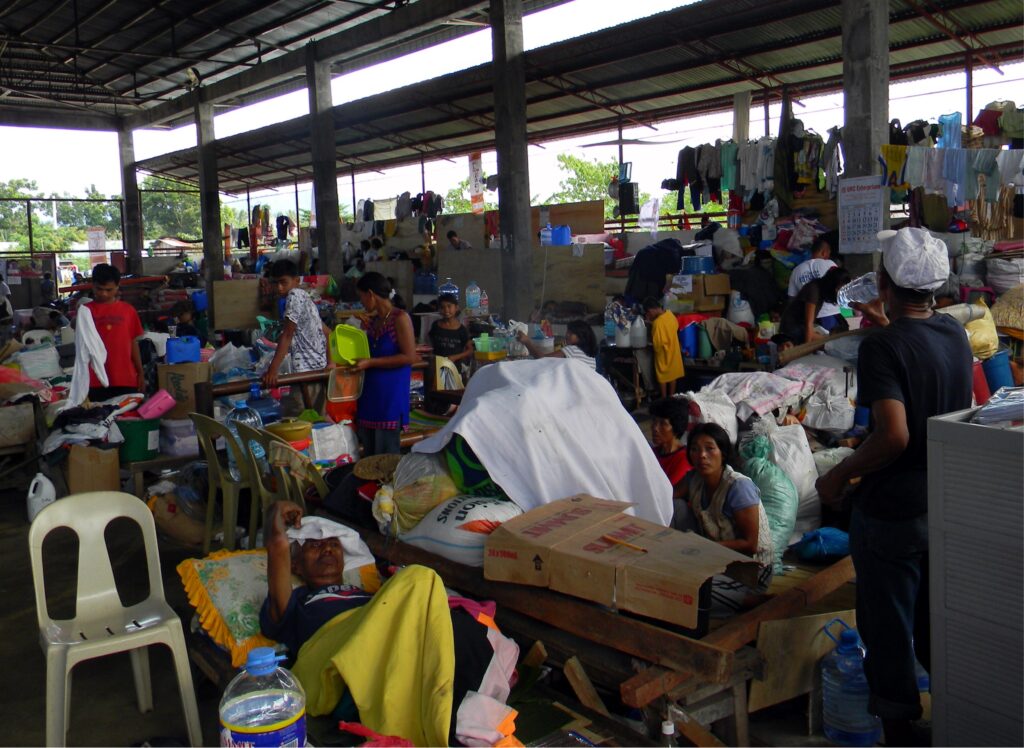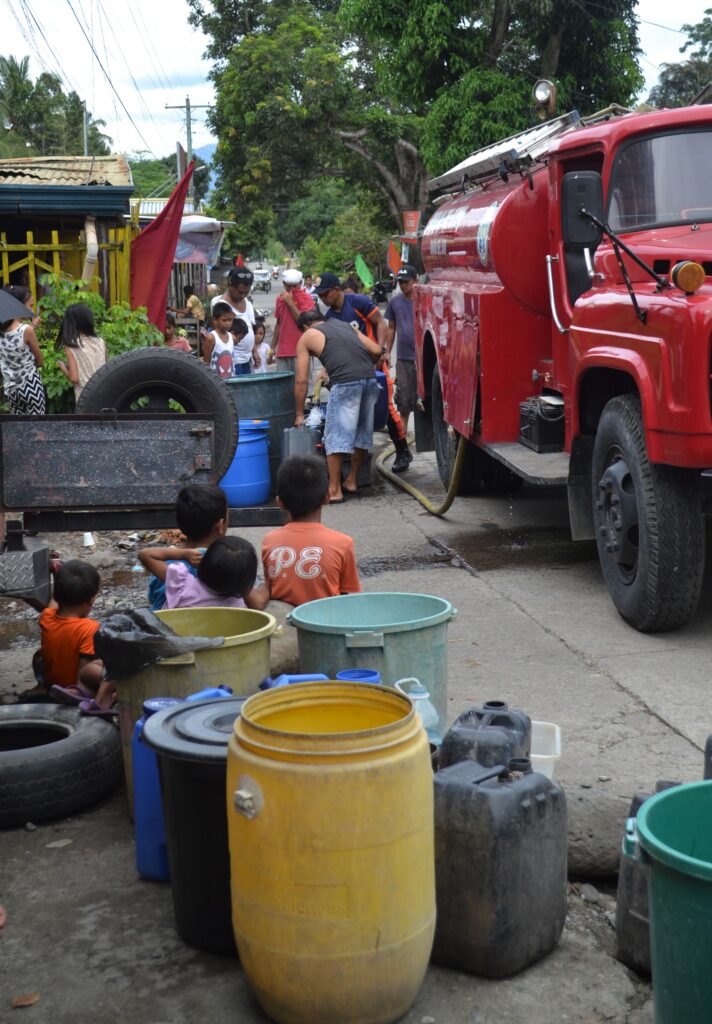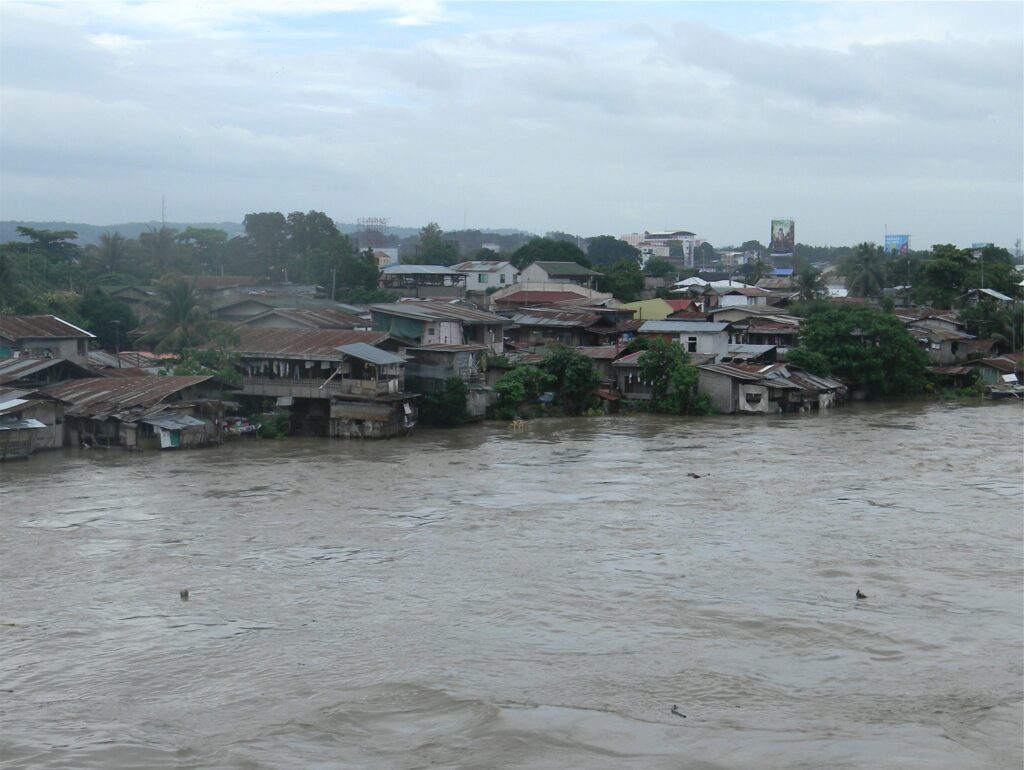Text and Photos by Henrylito D. Tacio
“Life on planet Earth is under siege,” according to the 2023 state of the climate report entitled, “Entering uncharted territory.” “We are now in an uncharted territory. For several decades, scientists have consistently warned of a future marked by extreme climatic conditions, because of escalating global temperatures caused by ongoing human activities that release harmful greenhouse gases into the atmosphere. Unfortunately, time is up.”
The report, published by the American Institute of Biological Sciences, further explained, “We are seeing the manifestation of those predictions, as an alarming and unprecedented succession of climate records are broken, causing profound distressing scenes of suffering to unfold. We are entering an unfamiliar domain regarding our climate crisis, a situation no one has ever witnessed firsthand in the history of humanity.”
As the world warms at a faster rate than at any point in recorded history, human health is on the frontline, stressed the World Meteorological Organization (WMO), the United Nation’s authoritative voice on weather, climate, and water.
Climate change threatens to reverse decades of progress towards better health and well-being, particularly in the most vulnerable communities. Scientific know-how and resources can help redress the balance, but are not sufficiently accessible or utilized, according to a new multi-agency report coordinated by the WMO.
Health issues
WMO’s annual State of Climate Services report this year focuses on health. It highlights the need for tailored climate information and services to support the health sector, in the face of more extreme weather and poor air quality, shifting infectious disease patterns, and food and water insecurity.

“Practically the whole planet has experienced heatwaves this year. The onset of El Niño in 2023 will greatly increase the likelihood of breaking temperature records further, triggering more extreme heat in many parts of the world and in the ocean – and making the challenge even greater,” said Prof. Petteri Taalas, WMO Secretary-General.
Dr. Tedros Adhanom Ghebreyesus, Director-General of the World Health Organization (WHO), agreed. “The climate crisis is a health crisis, driving more severe and unpredictable weather events, fueling disease outbreaks, and contributing to higher rates of non-communicable diseases,” he said. “By working together to make high-quality climate services more accessible to the health sector, we can help to protect the health and well-being of people facing the perils of climate change.”

Some mind-boggling findings
Let’s take a closer look at facts and figures of the report, which includes input from more than 30 collaborating partners:
· Between 2000 and 2019, estimated deaths due to heat were approximately 489,000 per year, with a particularly high burden in Asia (45%) and Europe (36%). Extreme heat conditions during the summer of 2022 were estimated to have claimed over 60,000 excess deaths in 35 European countries.
· Heatwaves also exacerbate air pollution, which is already responsible for an estimated 7 million premature deaths every year, and is the fourth biggest killer by health risk factor.
· Climate change is exacerbating the risks of food insecurity. In 2012-2021, 29% more global land area was affected by extreme drought for at least one month per year than in 1951–1960.
· The changing climatic conditions are also enhancing the transmission of many climatically sensitive infectious vector-, food-, and water-borne diseases. For example, dengue is the world’s fastest-spreading vector-borne disease, whilst the length of the malaria transmission season has increased in parts of the world.
Some of the most significant challenges to health are in the nexus of water, food security and nutrition, the nexus of infectious diseases (food-, water-, airborne and vector-borne diseases), and the nexus of extreme weather and air quality, particularly in urban areas, says the report.
“Climate change undermines health determinants and increases pressures on health systems, threatening to reverse decades of progress to promote human health and well-being, particularly in the most vulnerable communities,” the WMO lamented.
Worsening future
The Nobel-prize winning Intergovernmental Panel on Climate Change (IPCC) concludes, with very high confidence, that future health risks from injury, disease, and death will increase, due to more intense and frequent temperature extremes, cyclones, storms, floods, droughts, and wildfires.
“Health protection is a priority in almost all countries and requires high-quality information to better inform decision-making,” the WMO declared. “Climate information and services are fundamental for better understanding how and when health systems and population health can be impacted by climate extremes and a changing climate, and for managing climate-related risks.”

In 2019, air pollution moved up from the fifth to the fourth place in the scale of leading risk factors for death globally, continuing to exceed the impacts of other widely recognized risk factors for chronic disease like obesity, cardiovascular disease, and malnutrition.
“There is insufficient investment to improve the capabilities of the health sector, leaving it ill-prepared to safeguard the most vulnerable,” the WMO said. “Currently, just 0.2% of total bilateral and multilateral adaptation finance supports projects that identify health as the primary focus, and the investment in the capacity for multisectoral and effective climate science and services is miniscule.”
Warning
Climate change is upon us now. “The effects of global warming are progressively more severe, and possibilities such as a worldwide societal breakdown are feasible and dangerously underexplored,” warned the 2023 State of the Climate Report.
“By the end of this century, an estimated 3 to 6 billion individuals – approximately one-third to one-half of the global population – might find themselves confined beyond the livable region, encountering severe heat, limited food availability, and elevated mortality rates because of the effects of climate change,” the report added. – ###








